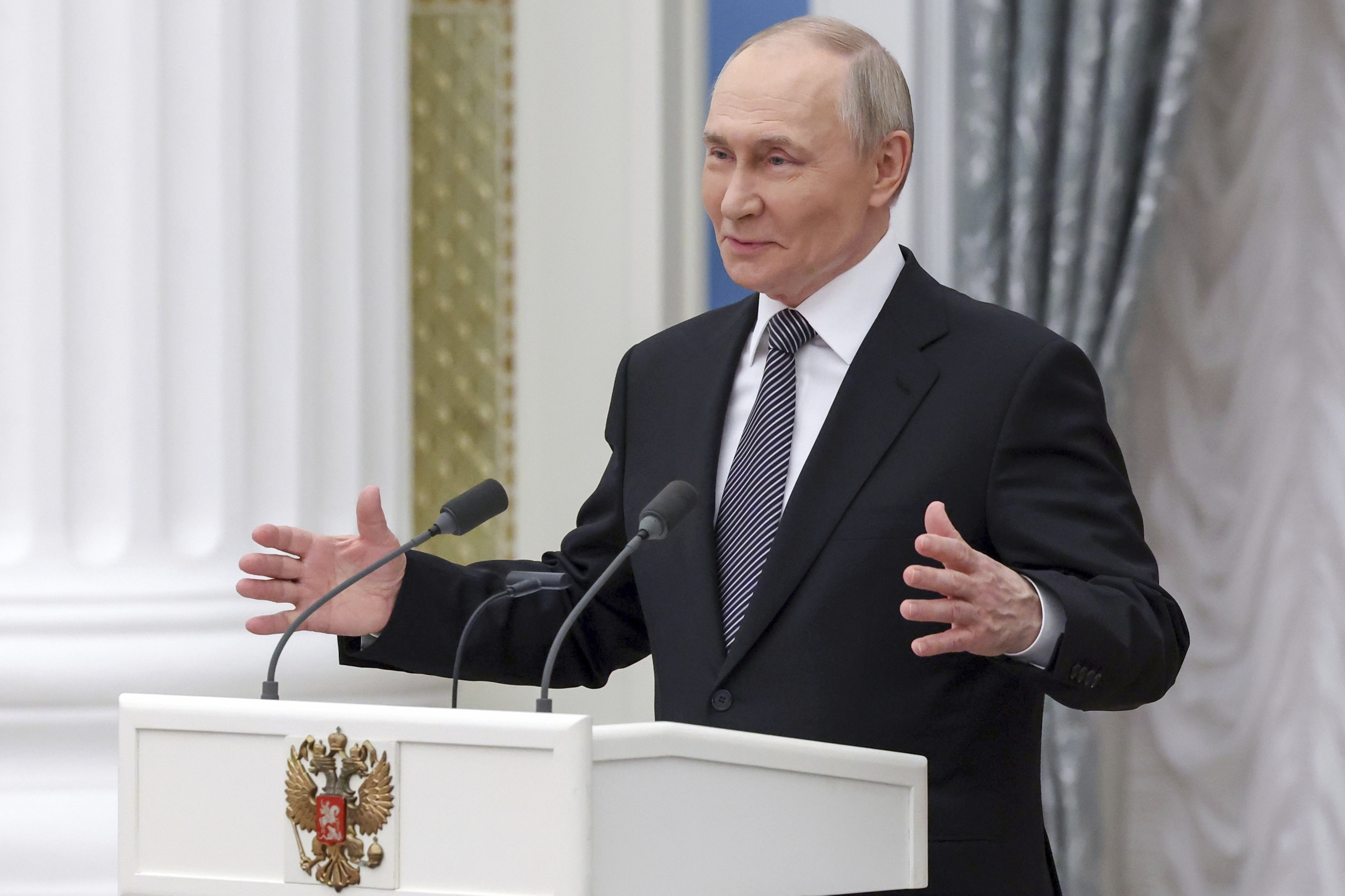Trump rehabilitates Putin's tankers. That is the initial interpretation of the statement regarding the Black Sea truce issued by the White House after 12 hours of negotiations in Saudi Arabia. Initially, it seemed like another ceasefire agreement that would fall through without an agreement, but on Tuesday afternoon, the pact was announced. "The US will assist Russia with international payment systems, maritime security, and access to ports to export fertilizers and other agricultural products in the global market," states the second point of the document, right after "ensuring safe navigation, eliminating the use of force, and preventing the use of commercial vessels for military purposes in the Black Sea." We still do not know if the agreement is beneficial for Ukraine, as it does not specify anywhere if the Ukrainian ports of Kherson, Mykolaiv, and Odesa are included in the ceasefire or if Russia can continue attacking them from a distance as it has done in recent weeks. However, we do know that the truce is very advantageous for Moscow for several reasons: Russia can resume, from its Black Sea ports, the export of gas, oil, and fertilizers that had been interrupted by Ukrainian maritime drones. In other words, they eliminate Ukraine's main tool: the ability to disrupt the sale of Russian oil by sea. Additionally, the agreement sponsored by the US commits to opening foreign ports through the Bosporus and even facilitates re-entry into the banking payment systems that the Kremlin had blocked due to sanctions.
The document raises more questions than answers today, as it mentions "favoring navigation," but, what will happen to the warships deployed in the Black Sea? Ukrainian Defense Minister Rustem Umerov emphasized on his X account: "Any movement by Russia of its military vessels outside the eastern part of the Black Sea will be considered a violation of the commitment to ensure safe navigation in the Black Sea and a threat to Ukraine's national security. In this case, Ukraine will have the full right to exercise its legitimate defense." In other words, they will fire upon them.
Another issue raised by this ceasefire is whether Europeans will accept and also allow Russia some relaxation of sanctions on maritime transport. Russia claims that, for the agreement to take effect, its agricultural bank, Rosselkhozbank, must reconnect to the Swift system. And this cannot be done without the consent of the Europeans, who have not made any statements to that effect. These European sanctions expire on July 31, 2025, and to lift them before that date, as Russia demands, the EU must vote unanimously. In summary: it is unlikely to happen.
In conclusion, according to German analyst Nico Lange, "Russia had already been defeated in the western Black Sea, and Ukraine had successfully fought to open commercial routes from Odesa. With yesterday's agreement, Russia practically concedes nothing, but receives relief from some sanctions and new income for its military machinery." Zelenski went further: "Ukraine will not attack Russian energy facilities as long as Putin continues to attack ours. As of today, this is what this agreement sounds like." For now, with this step, we see Russia defending its interests in two contexts where a ceasefire was convenient: remote energy attacks, which were depleting a significant portion of its oil refining capacity with Ukrainian drone bombings, and in the Black Sea, where once again maritime drones had sunk 30% of the entire Russian fleet in Sevastopol (even their flagship, the cruiser Moskva), and the rest had been cornered in port.
If Ukraine does not achieve a complete ceasefire in the coming weeks, this preliminary agreement seems destined to derail due to the imbalance it represents and the decision of Europe, which has not been invited to these negotiations but now has the final say.
